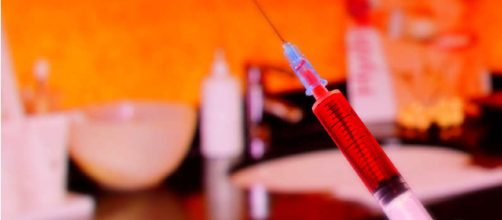Young people in their twenties are on the rise when it comes to the use of preventative Botox, i.e. getting the procedure done before any real lines or wrinkles appear. The issue has sparked a controversy among doctors who specialize in cosmetic surgery and whether the long-term effects of preventative Botox could be worse than the Aging Process itself.
Dermatologists across the world have varying opinions when it comes to the issue of preventative Botox, and the right age when a person should opt for such a procedure.
How young is too young?
Dermatologist Joshua Zeichner, who is the director of cosmetic and clinical research at Mount Sinai Hospital in New York City says that a person should opt for treatment once they notice that lines or wrinkles have begun to "stick around." In an interview with magazine Allure, Zeichner explained that Botox is not necessary until lines which appear on our faces when we smile or frown, become permanent.
For some people, this might happen in their mid-twenties, and for others only in their thirties. Zeichner also adds that he would try to avoid doing Botox on a person who was under the age of 25.
However, Debra Jaliman, a New York City-based dermatologist, says that the earlier one starts, the better the results. Jaliman told Allure that the chemical works by relaxing the muscle, and once it is relaxed, the skin above the muscle relaxes too; therefore the wrinkles are gone. She also added that mid-twenties are a good age to start with the procedures if the person has a very expressive face.
A waste of money?
Maryam Zamani, MD, a consultant at London’s Cadogan Clinic, told Refinery29 that she is against preventative Botox.
Dr. Zamani claims that it is a waste of money and could potentially make you seem even older. "A lot of people start in their twenties as a mechanism to ward off getting lines and wrinkles caused by movement. But in reality, a lot of people in their twenties don’t have any of those lines yet. It usually starts in your thirties,” she said. Zamani added that starting too early will make matters worse, as paralyzing the muscles in the brow or around the eyes will, over time, cause them to develop atrophy.
Even though dermatologists are divided on the issue, all agree that it is not the age which is important, but rather the person's lifestyle, diet and whether they have an expressive face which is prone to wrinkles. Activities such as tanning, smoking, use of alcohol or drugs will certainly speed up the aging process, but genetics also play a big role.


